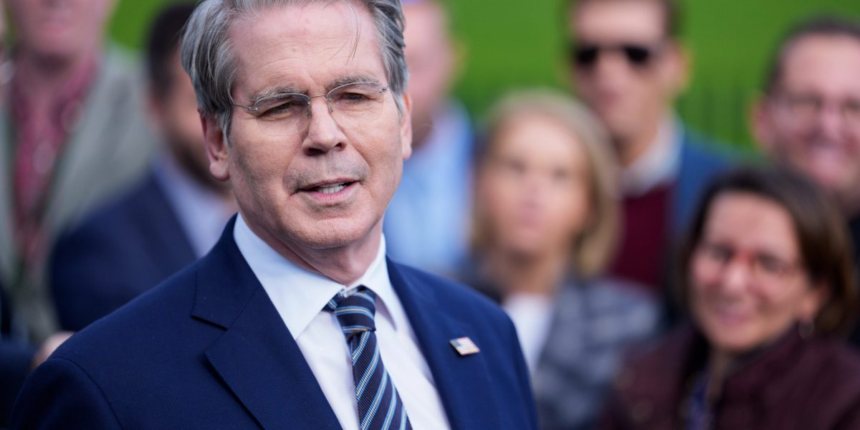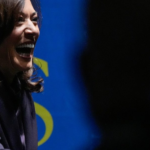China’s top trade negotiator, Li Chenggang, told reporters that the two sides had reached a “preliminary consensus,” while Trump’s treasury secretary, Scott Bessent, said there was “a very successful framework.”
Trump also expressed confidence that an agreement was at hand, saying the Chinese “want to make a deal and we want to make a deal.” The Republican president is set to meet with Xi on Thursday in South Korea, the final stop of his trip through Asia. Trump reiterated that he plans to visit China in the future and suggested that Xi could come to Washington or Mar-a-Lago, Trump’s private club in Florida.
Bessent told CBS’ “Face the Nation” that the threat of additional higher tariffs on China was “effectively off the table.” In interviews on several American news shows, he said discussions with China yielded initial agreements to stop the precursor chemicals for fentanyl from coming into the U.S., and that Beijing would make “substantial” purchases of soybean and other agricultural products while putting off export controls on rare earths.
At the summit, Thailand and Cambodia signed an expanded ceasefire agreement during a ceremony attended by Trump. His threats of economic pressure prodded the two nations to halt skirmishes along their disputed border earlier this year.
Thailand will release Cambodian prisoners and Cambodia will begin withdrawing heavy artillery as part of the first phase of the deal. Regional observers will monitor the situation to ensure fighting doesn’t restart.
“We did something that a lot of people said couldn’t be done,” Trump said. Cambodian Prime Minister Hun Manet called it a “historic day,” and Thai Prime Minister Anutin Charnvirakul said the agreement creates “the building blocks for a lasting peace.”
The president signed economic frameworks with Cambodia, Thailand and Malaysia, some of them aimed at increasing trade involving critical minerals. The United States wants to rely less on China, which has used limited on exports of key components in technology manufacturing as a bargaining chip in trade talks.
“It’s very important that we cooperate as willing partners with each other to ensure that we can have smooth supply chains, secure supply chains, for the quality of life, for our people and security,” U.S. Trade Representative Jamieson Greer said.
This year’s event was a chance for Trump to reengage with nations that have a combined $3.8 trillion economy and 680 million people.
“The United States is with you 100%, and we intend to be a strong partner and friend for many generations to come,” Trump said. He described his counterparts as “spectacular leaders” and said that “everything you touch turns to gold.”
Trump’s tariff threats were credited with helping spur negotiations Thailand and Cambodia. Some of the worst modern fighting between the two countries took place over five days in July, killing dozens and displacing hundreds of thousands of people.
Trump met Brazilian President Luiz Inácio Lula da Silva in Kuala Lumpur, who was also attending the summit. There has been friction between them over Brazil’s prosecution of Jair Bolsonaro, the country’s former president and a close Trump ally. Bolsonaro was convicted last month of attempting to overturn election results in his country.
“I think we should be able to make some good deals for both countries,” he said.
___
Associated Press writers Josh Boak in Tokyo and Jintamas Saksornchai in Bangkok contributed to this report.









